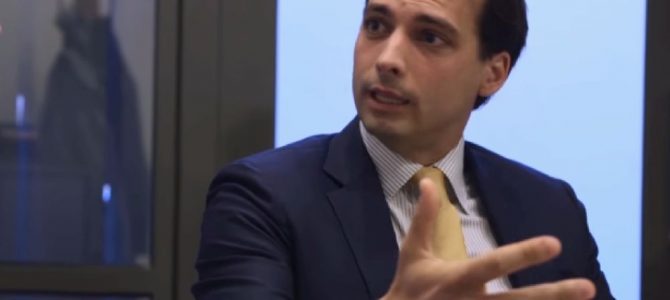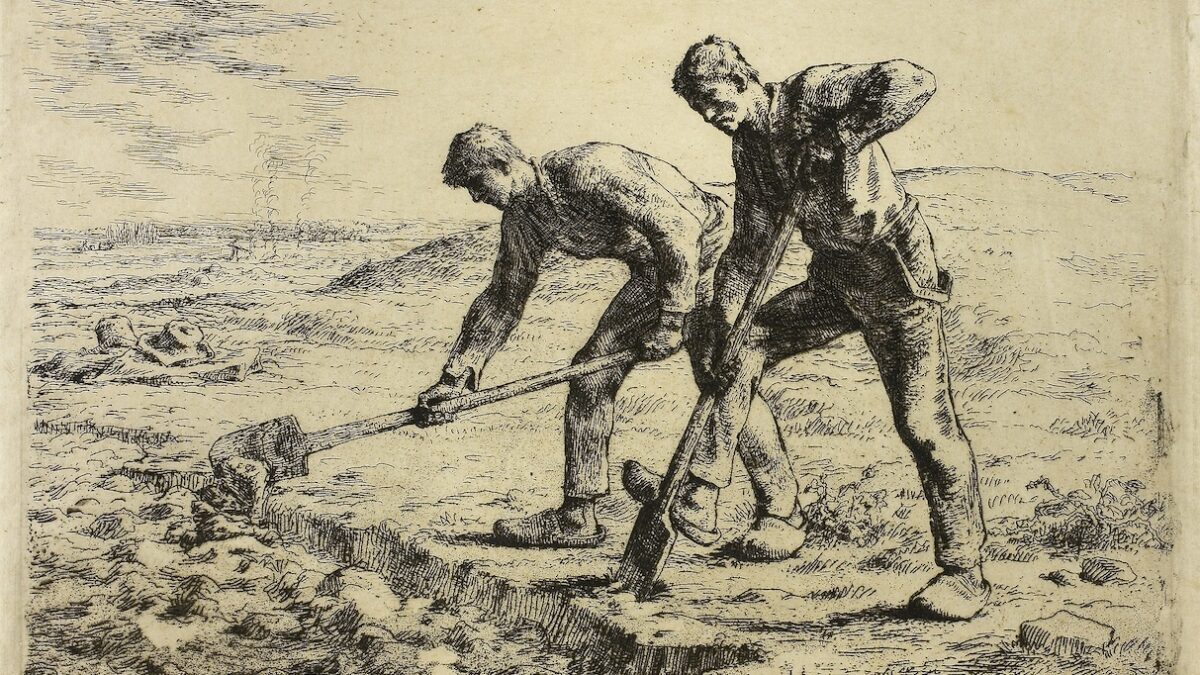
Last month, global attention fixated on the elections in the Netherlands. Would Dutch voters go the way of Brexit and Trump and make far-right populist Geert Wilders their new prime minister? Tensions about the European Union and Muslim mass immigration are simmering all over Europe, but they seem to boil over more frequently in the Netherlands than in other countries.
It’s fair to say the election result was mixed. Wilders and his Party for Freedom gained five seats. Incumbent Prime Minister Mark Rutte’s Liberal Party lost eight seats, but they are still the largest party in parliament and he is likely to keep his job. CNN led with the headline, “Europe’s far-right populists fail first test.” German Chancellor Angela Merkel, herself threatened by far-right opponents, called the result “a good day for democracy.” In the past, Rutte would probably have handed in his resignation. But in the wake of Brexit and Trump, keeping far-right politicians out of office is a victory even if you lose eight seats along the way.
Dutch parliamentary elections use a proportional representation system to divvy up 150 seats. No party ever wins an absolute majority. This gives Dutch politics a very different character from American ones. The largest party has to form a coalition with one or two other parties to get a majority of seats.
Liberals and Labour Lose Big
Amidst the jubilation over Wilders’ “defeat,” little attention was paid to the fact that Rutte’s partner in the previous coalition, the Labour Party, lost 29 seats—a shattering and unprecedented fall. Rutte’s coalition delivered fantastic growth for the Dutch economy. The government budget has a 3 billion euro surplus for the first time in 10 years.
Yet Dutch voters empathically rejected this coalition. Various factors contributed to the decline of the Labour Party, including that the party lost touch with its traditional base of blue-collar voters. These voters see globalization and mass immigration as a threat to their jobs, and the Labour Party did nothing to reassure them.
Rutte helped his Liberal Party by shifting his rhetoric to the Right. He published an open letter in which he said those who don’t respect Dutch values should leave. “The letter could have been written by Geert Wilders 10 years ago,” says Jan van Benthem, a commentator with various Dutch media outlets.
Another development that drew little attention outside the Netherlands is the arrival of Forum for Democracy, a new political party led by Dutch public intellectual Thierry Baudet. Describing his party, Baudet speaks in high-minded terms: “We are a new generation of Europeans who want to stand up for our western values.”
Not All Right Politicians Are Extremists
Inevitably, though, Baudet and the Forum for Democracy will be evaluated via comparisons to Wilders and the Party for Freedom. Like Wilders, Baudet is sharply critical of mass immigration from Muslim countries and wants to see the Netherlands exit the EU and the euro. But there are also important differences. “Thierry Baudet has far more nuance. He’s less black and white. He’s not as anti-Islam and not as anti-immigration,” says van Benthem.
Baudet likes to refer to Dutch mainstream political parties as a “cartel.” He focuses on direct democracy as the means of breaking that cartel. Last year, he helped organize a referendum on an association agreement between the European Union and Ukraine. The Dutch parliament had ratified it, yet voters rejected it by a large margin. Then Dutch elected leaders ignored the referendum results. At that point, Baudet concluded he should run for office himself. “All other options were exhausted,” he says.
Dutch law currently allows referendums on legislation parliament has recently enacted. “We are happy to have that law but we want to expand it to make it possible to have a referendum on any subject,” says Baudet. He hopes this will result in referendums on the euro and mass immigration.
He believes a Dutch exit from the European Union is inevitable, “I hope within 10 years. I fear within 20 years. Within the next 10 years the EU will unravel –with more bailouts for southern countries, more mass immigration, more terrorist attacks, more regulations to stifle our entrepreneurs,” he says. He does not believe Prime Minister Rutte’s tough talk about how immigrants who don’t like Dutch values should leave. “That’s empty rhetoric from politicians who want to be reelected,” he says.
Nuances on Foreign Immigration
Baudet begins to sound like Wilders when talking about immigration. “We are letting our culture be diluted through waves of mass immigration,” he says. “We are admitting too many people from a completely different background.”
In keeping with progressive Dutch social values, though, Baudet doesn’t think extremely low birth rates are contributing to this social problem. “It’s not necessarily such a bad thing for our population to shrink a bit,” he says. “Apart from telling people to enjoy life a bit more, there’s not much politicians can do about it.”
Like Wilders, Baudet has drawn accusations of racism. During one campaign event, he spoke of the “homeopathic dilution” of the Dutch population via Muslim mass immigration. Baudet claims the phrase was meant jokingly and taken out of context. “I said that after a question from a member of the audience on homeopathic medicine. Then some journalist tweets it like it’s the most serious thing he’s heard in his life.”
Despite having been part of the Dutch political and media elite for years, Baudet feigns surprise that his off-the-cuff remarks are sometimes misrepresented to stoke controversy. “It’s all new to me how this political game is played,” he claims. He has no plans to start playing that game. “There’s something to be said for politicians who speak freely. I’m not sure if I’m willing to go under the yoke of adapting my speech to avoid these malign interpretations,” he says.
‘The Intelligent People’s Alternative to Geert Wilders’
This “speaking freely” is also a critical part of his success. Baudet, who is just 34 years old, was already a public figure in the Netherlands before he ran for office. His flamboyant personality made him a popular columnist and TV guest. All the Dutch voters interviewed for this article, even those who didn’t cast their ballot for him, were familiar with him and his platform.
Wilders’ base consists largely of blue-collar voters, while Baudet holds a doctorate in political philosophy and has published nine books, including one on classical music appreciation. One Dutch voter said, “Thierry’s party can be considered as the intelligent people’s alternative for Geert Wilders.”
“As opposed to the Party for Freedom, Forum for Democracy is a party that emerged from the elite,” says Bart-Jan Heine, a lecturer in political science at Thorbecke Academie in the Netherlands. “Forum for Democracy was founded as a think tank that organized lectures and published reports. Their list of parliamentary candidates consisted of lawyers, professors, successful entrepreneurs, a violinist, and a national chess champion.”
A Dutch voter who regards Baudet’s views as “scary” said, “At least it’s nice to finally see some intellectual foundation to Party for Freedom ideas.”
Baudet denies that Forum for Democracy is a party for white-collar Dutch people, but he does say, “We’re much more serious [than the Party for Freedom.] They’re a successful protest party. We have the potential to become a governing party,” he says. “It’s a very negative message they’re constantly sending out.”
It’s hard to argue with the latter statement when Wilders’ current Twitter banner read “STOP ISLAM” and he landed in legal hot water for chants of “fewer, fewer Moroccans” at one of his campaign rallies in 2014. Baudet believes Forum for Democracy has more potential for mainstream appeal. “We focus on the positive shared values that we have in the Netherlands,” he says.
Winning Any Seats Is a Victory
In this last election he won two seats out of 150 in the Dutch parliament. That may not seem like much to an American audience, but Dutch political analysts agree that it represents a solid start. “It’s the best outcome they could have hoped for,” says van Benthem. Forum for Democracy is now the smallest party in parliament, but at least they are there. In March’s election, 28 parties appeared on the ballot and only 13 won any seats at all.
“[Baudet’s] seat in parliament will allow him to continue his disruption of the political dialogue on certain issues. Every party gets speaking time based on their number of seats. It’s not always one on one. Smaller parties have plenty of possibilities to express their views,” says van Benthem.
Baudet is eager to leverage his new platform. “We can put issues on the agenda. We can force politicians to speak out on issues. We can be a pain in the a– for the government,” says Baudet. “We can build our party with all the government subsidies we will get.” His plans include fielding candidates in the next local and European Parliament elections.
The Dutch voting system makes it easier for new parties to attain national elected office than the American system. However, these upstart parties have an ignoble tradition of infighting and self-sabotage. The man who holds Forum for Democracy’s second seat, Theo Hiddema, is also a strong personality. “Forum for Democracy has two members of parliament. They both have strong egos,” says van Benthem. “A lot of analysts think the egos will clash and in a year we’ll have two parties.”
If Forum for Democracy grows, it will be incrementally. There are many potential pitfalls along the way. But March’s elections showed there is room in the Dutch political spectrum for Baudet’s idea. Now it’s up to him to build from there.









